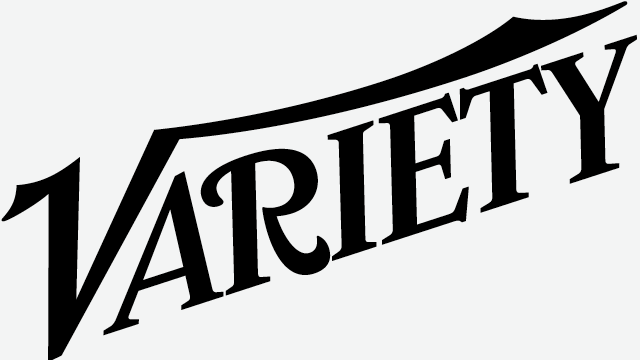Composer Blake Neely Keeps DC’s TV Universe in Tune

A studio on a busy street in North Hollywood is the center of television’s DC Universe – musically speaking, at least.
It’s there that Blake Neely, 47-year-old native of Paris, Texas, creates the sound of “Arrow,” “The Flash,” “Supergirl” and “Legends of Tomorrow,” as well as the CW’s Archie Comics reimagining “Riverdale”‘ and NBC’s thriller “Blindspot.”
A three-time Emmy nominee, Neely composes, supervises and/or produces approximately four hours of original music every week for all six series. He hasn’t taken a day off since Jan. 1 and won’t have another until the season ends in May.
“The fun thing,” he says, “is writing music all day. I get to bang on drums and play piano. The most fulfilling thing,” he adds, “is when I solve a puzzle, finding what music makes a scene work, whether it’s a short little cue or an epic eight-minute one. How do I do this without being too manipulative, without stepping on the dialogue? It’s a puzzle. You figure it out.”
He’s been figuring it out for 15 years, beginning with the WB drama “Everwood,” whose warm Americana theme earned him one of those Emmy nods. It was also the show that introduced him to writer-producer Greg Berlanti, and they have done another dozen series (and more than 500 episodes) together since then.
“I went over to his house, we sat in his backyard and he composed the theme for ‘Everwood’ right there in front of me,” Berlanti remembers. “Whenever I’m working on anything new, a vital part of the process is visiting Blake and having an exploratory time with him where we find the musical voice of the show.”
Nowhere was that more critical than in their discovery of the musical signatures of the DC superheroes that now populate the CW: The Flash (“fast and propulsive,” Neely says), Arrow (“darker, heavy and pounding”), Supergirl (“a more traditional sound, an homage to John Williams”) and the Legends (“a jaunty, swashbuckling theme but with a rock ‘n’ roll attitude”).
“The thing about these shows,” Neely adds – pointing to the action figures of all these comic-book figures on a shelf in his studio – “is that it’s not just fun, it’s a responsibility. These characters existed long before you and me, and the audience that comes with them can be very critical.”
For “Riverdale,” which drops Archie, Betty and Veronica into a small-town murder mystery, “traditional instruments don’t work for me,” Neely says. “I’ve gone more electronic.” And for “Blindspot,” he chose “the most aggressive, in-your-face sounds, with lots of distortion and drive.”
But with as much as 30 to 40 minutes of music for each show, and the necessity of mixing six shows every week, one person couldn’t manage it all. So he has assembled a team of three other composers (Nathaniel Blume, Sherri Chung, Daniel Chan, all graduates of USC’s scoring program) who contribute additional music, although, he says, he still manages to compose at least half of each show.
“I can say, ‘you take the car chase, I’ll do the love scene,'” Neely says with a laugh. Most of their music is created “in the box,” using samples and synths, although they will also bring in soloists as necessary.
The first episode of each show tends to be done with an orchestra, to properly set up the themes and sound palette. And Neely scored the recent “Flash” musical episode with a 50-piece orchestra.
“We work together in the beginning and the early episodes,” Berlanti explains. “Once he’s found the themes and the voice, the tone and the style of the show, he’ll work more directly with the showrunners. What’s always most exciting for me is, I’ll work on a show for months and then, when I hear it with the music at the mix, it’s like I’m experiencing it for the first time. That happens almost weekly for me.”
Neely’s work isn’t just in series television, however. He loves working on documentaries (“Space Shuttle Columbia: Mission of Hope,” “The Case Against 8”) and his powerful theme for CNN’s “The Sixties” has recently been adopted for the sequels “Seventies” and “Eighties” (“American, slightly heroic and slightly nostalgic” is how he describes it).
Netflix will debut his next documentary series, “The Keepers,” May 19; it explores the 1969 cold case of a nun’s murder in Baltimore. “I do so much of the entertaining stuff, about fictional characters,” he says, “that my dessert is, I can write something about an actual human being, and try to convey what they’re going through.”
Like most successful media composers, Neely worked his way up from the bottom. After childhood piano studies, he interned in Disney’s music department while in college in the ’80s, took night classes in film-music composition at UCLA in the early ’90s, and even wrote the amusing, best-selling instruction book “Piano for Dummies” (“it’s just a big, lazy piece of oversized furniture with a bunch of black and white keys on it,” reads the introduction).
Orchestration, arranging and conducting for A-list composers Michael Kamen (“The Iron Giant”), Vangelis (“Mythodea”) and Hans Zimmer (“The Last Samurai”) followed, and when the first composer on “Everwood” didn’t meet Berlanti’s expectations, a WB executive recommended Neely and their partnership was launched. He also scored more than 140 episodes of the CBS series “The Mentalist.”
He composed the music for Berlanti’s 2010 feature “Life As We Know It” and will shortly tackle Berlanti’s next film as director, “Simon vs. the Homo Sapiens Agenda,” a coming-of-age story about a gay teenager’s decision to come out to his classmates.
“He’s a true savant,” says Berlanti from the New York set where he’s shooting the movie. “I can only say what I like or what sounds right to me. He’s like having a composer, conductor and orchestra all right in front of you at the same time. He’s a real magician.”
Get more from Variety and Variety411: Follow us on Twitter, Facebook, Newsletter

